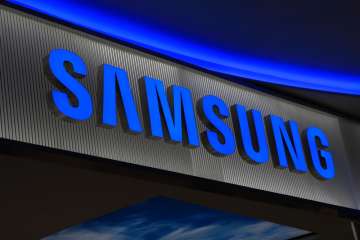Samsung Electronics posted 14.9 trillion won ($13.3 billion) in operating profit for the second quarter that ended on June 30 as revenue fell 4 per cent to 58.5 trillion won ($52.2 billion) from a year earlier, the company announced on Tuesday.
The consolidated net profit was 11.04 trillion won ($9.85 billion).
"Second quarter revenue fell due to softer sales of smartphones and display panels, despite robust demand for memory chips," said the South Korea-based giant.
The chip business continued to deliver strong earnings, driven by demand for DRAM chips used in data centres and NAND flash memory for high-capacity storage, amid a softening of NAND prices.
In the display business, the company saw weak demand for flexible OLED panels in the second quarter while the shipment and price for LCD panels also fell.
Amid the stagnant high-end smartphone market, Samsung reported a drop in earnings, both year-on-year and quarter-on-quarter, over slow sales of the Galaxy S9 and S9+ premium smartphones.
The network business, however, achieved solid growth led by investments in LTE networks by key global customers.
The mobile market condition will likely remain challenging in the second half amid pricing competition and new product launches, said Samsung.
"The company will respond through the early introduction of the Galaxy Note and competitive mid- and low-end models with new features," it added.
In mobile, demand for high-density storage for new smartphones and high-end models is likely to remain robust.
"In mobile, in addition to new flagship smartphone launches, memory content is projected to increase in mid-range models as they begin to support high-specification mobile games, on-device AI and dual camera features," said Samsung.
Demand for smartphones and tablets is forecast to increase in the second half as the market enters a period of strong seasonality, but competition is seen intensifying as new smartphone models are released.
Following a successful restructuring of its product line-up, Samsung led expansion of the premium TV market, winning more than 50 per cent market share in the ultra-large screen segment of 75-inches and above.
Looking to the second half, the TV market is projected to grow YoY, especially in developed economies, said the company.
"Looking ahead, Samsung expects sustained strength in the memory market and growing demand for flexible OLED panels to drive earnings higher in the second half," the company added.

